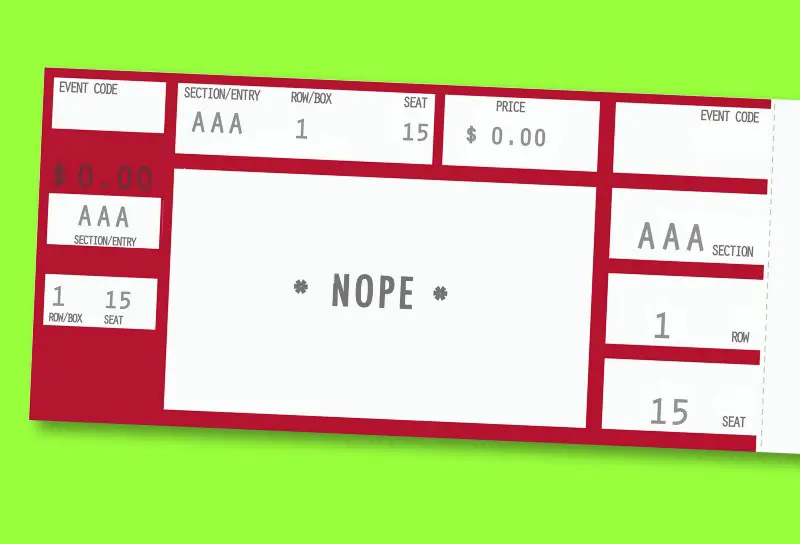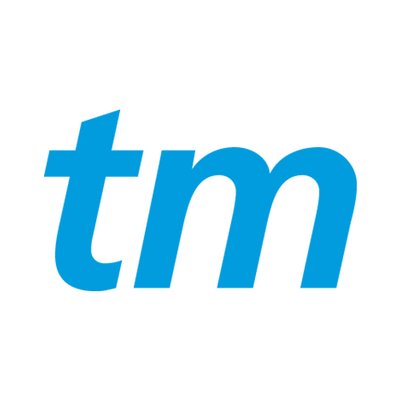
Ontario’s proposed concert ticket legislation is dumb and doomed to fail
After a couple of years of consultations, the Ontario Government’s legislation regarding tickets for concerts, sporting events, and theatre productions goes into effect July 1. And it’s all headed towards an epic fail.
Buying tickets is one of the most miserable consumer experiences invented by capitalism. Putting a cap on the price of a ticket on the secondary market will do nothing to help the situation.
Rather than repeat myself here, let’s go to this story at the CBC.
Ontario’s new law promising to cap prices on scalped sports and concert tickets — due to roll out July 1 — will fail, critics warn, in part because the province isn’t adding new staff to enforce it.
Ontario’s Ministry of the Attorney General told CBC News in a statement this week the government will “use its existing resources to enforce the new Ticket Sales Act.”
The new law dominated debate among music journalists and ticket companies attending Canadian Music Week in Toronto, with many of them questioning whether the new law will work.
“If they’re not adding new resources that would be a pretty toothless law if there’s no enforcement,” said veteran music journalist and radio personality Alan Cross. “Who’s going to abide by it?”
Cross hosted an on-stage interview with Jared Smith, president of Ticketmaster’s North American operations, during the conference for artists and industry professionals.
Smith defended the online ticket company’s expansion into the “resale market” frequented by scalpers and mass ticket brokers. He also criticized Ontario’s new law, saying an attempt to cap prices simply won’t work.
“A cap is going to be unenforceable … technologically and otherwise,” Smith said.
Then there’s this story in The Toronto Star.
With 50 days to go before Ontario’s landmark ticket scalping law comes into force, entertainment industry insiders worry it will be powerless to protect consumers.
The Ticket Sales Act, which passed last December and comes into force July 1, will ban computer “bots” used to automatically buy up sports and concert tickets and cap resale markups at 50 per cent above face value.
When the law was passed, the province promised “new enforcement measures.” The province told the Star and CBC this week that there would be no new funding or additional personnel, calling into question whether the sale of hundreds of thousands of tickets for events this summer will be effectively policed.
Veteran radio DJ Alan Cross has followed the rapid evolution of the ticket market as it moved online and believes Ontario’s new law will be unenforceable.
“This is a horrible, poorly thought-out piece of legislation,” Cross said at a Canadian Music Week event Thursday. “It’s a populist pander to fans … (But) it’s not going to make it easier for fans to get tickets.
If you want to take a really, deep dive into all the problems and complexities of selling, reselling, and buying tickets, check out my Ongoing History podcast on the subject here.




So TM says they’ll comply with the new Ontario law, but does that apply only for sales by/to Ontario addresses? How will they control prices for me in Calgary? Or are the hosting of services in Ontario the governing factor? If so, why wouldn’t services simply move to another province? This whole exercise is stupid.
If consumers helped report violations, I could see how it might limit posted prices on online secondary market sites. I’m not sure how enforceable the law is when an Ontario resident uses a company based elsewhere.
Another question is how will the cap be determined when TM uses dynamic pricing? Tickets bought immediately after the onsale date are being sold at a higher price than than tickets being sold closer to the event date. There are examples from the recent U2 tour where two people sitting next to each other in the same section and row have a $100+ difference in the face value of the ticket they purchased from TM. I guess the cap would have to apply to the price printed on the ticket.
Since TM has created their own secondary market with fan resale tix mixed in with other tickets they have a lot of control over the market. I’d be curious to know how much Stubhub and other secondary markets have done since TM started this option.
To consumers, the tix industry is a mess, but to TM it’s boom time. Over the past year, Live Nation has made $10.4 billion (but somehow managed a loss….maybe the investment in facial recognition software has become too expensive). However, TM part of LN, is doing better than ever.
From Live Nation: “Ticketmaster had a very strong start to the year as well, growing revenue by 19%, operating income by 19% and AOI by 17% for the quarter, as it had its largest quarter in history, transacting almost 60 million tickets for 21% growth in global gross transaction value (“GTV”) to $5 billion.” A 19% increase in revenue. Wow.
Would love to see a breakdown of where the money goes for $100 concert ticket. I know agreements are different for every artist but would like to know how much I’m actually giving to the artist vs. the venue vs. LN/TM.